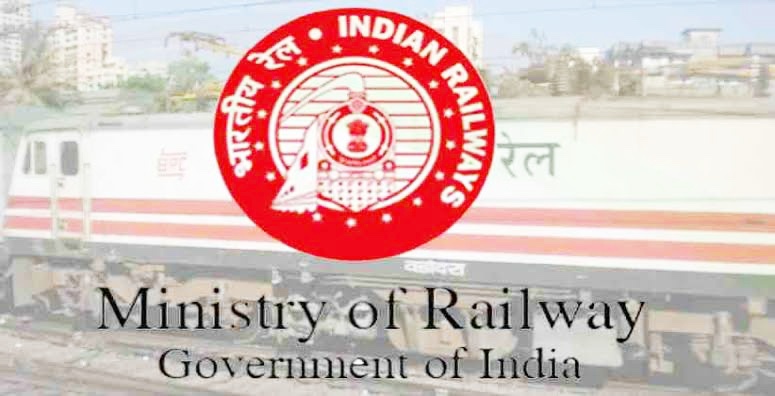Policy Corruption: Concerns Over The Upgradation of Toilets in 4000 ICF Conventional Coaches
The recent initiative by the Indian Railways to upgrade the #toilets of 4000 #ICF conventional coaches under the Rolling Stock Programme (#RSP) has raised significant concerns over #transparency, #material-suitability, and #financial prudence. The project, allocated under #PinkBook Item No. 1254/2017-18 or 514/2023-24, as per Railway Board’s letter No. 2022/EDME (EnHM & Projects)/Misc12, dated 25.11.2024, has been questioned for its procedural lapses and the introduction of an untested material—Thermoformable Decorative Polymerised Composite Panel (#TDPCP).
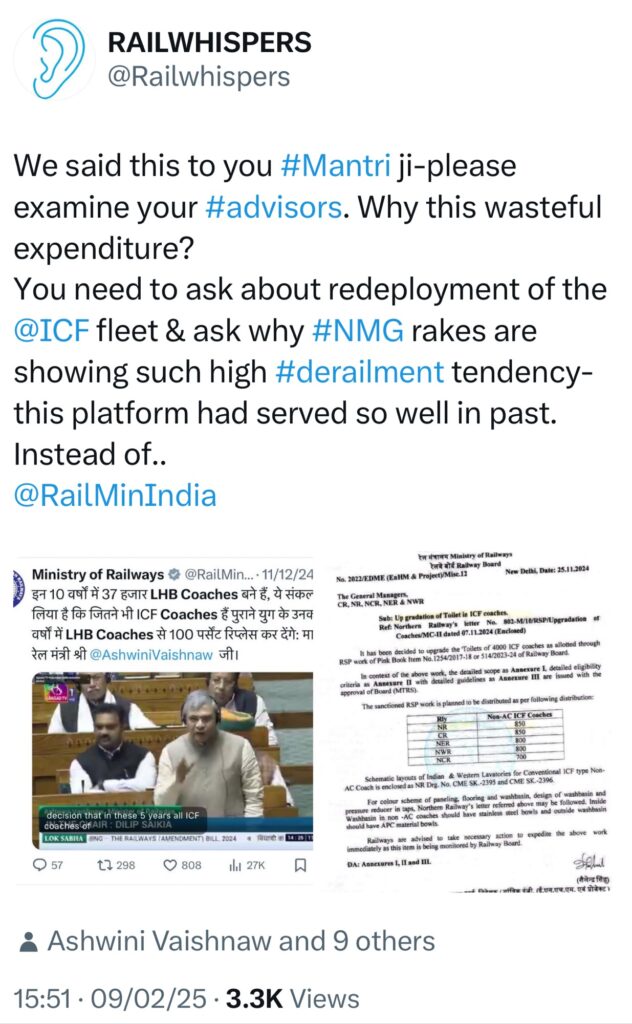
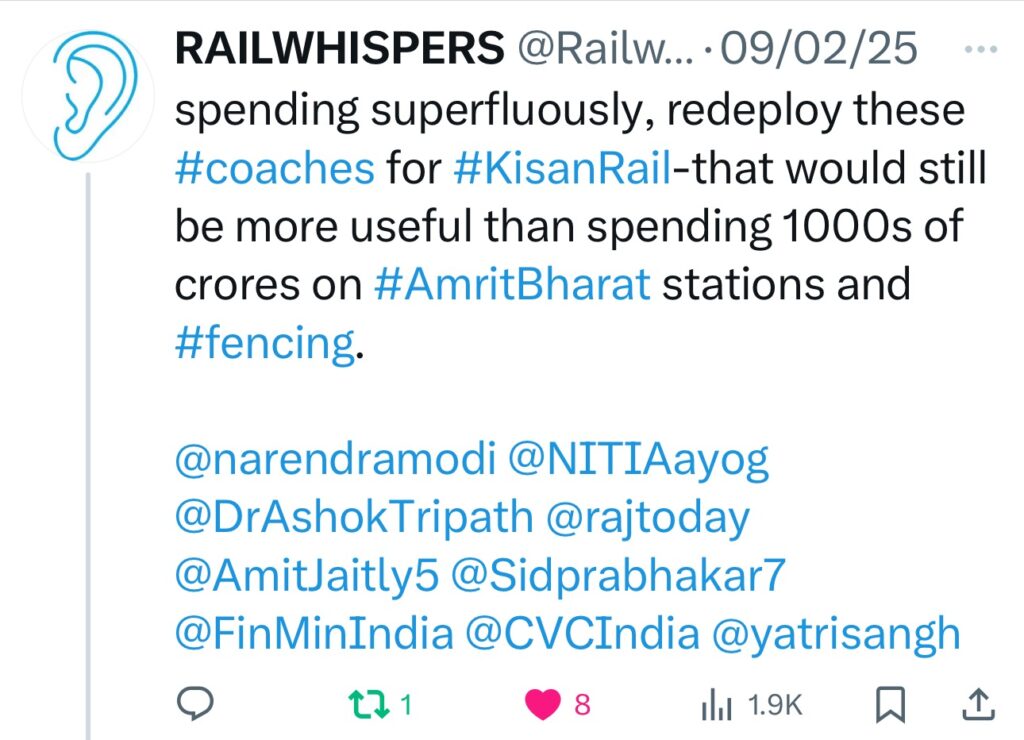
Issues with TDPCP as a Core Material
A major concern is the use of #TDPCP in critical areas such as #toilet wall panels, ceilings, doors, non-AC gangways, linen almirahs, and electrical panels. While TDPCP is commonly used in automotive and aerospace industries, it lacks an established #track-record in railway applications. There is no #evidence of extensive trials or validation processes undertaken before including this material in the project, making its performance in real-world railway conditions highly uncertain.
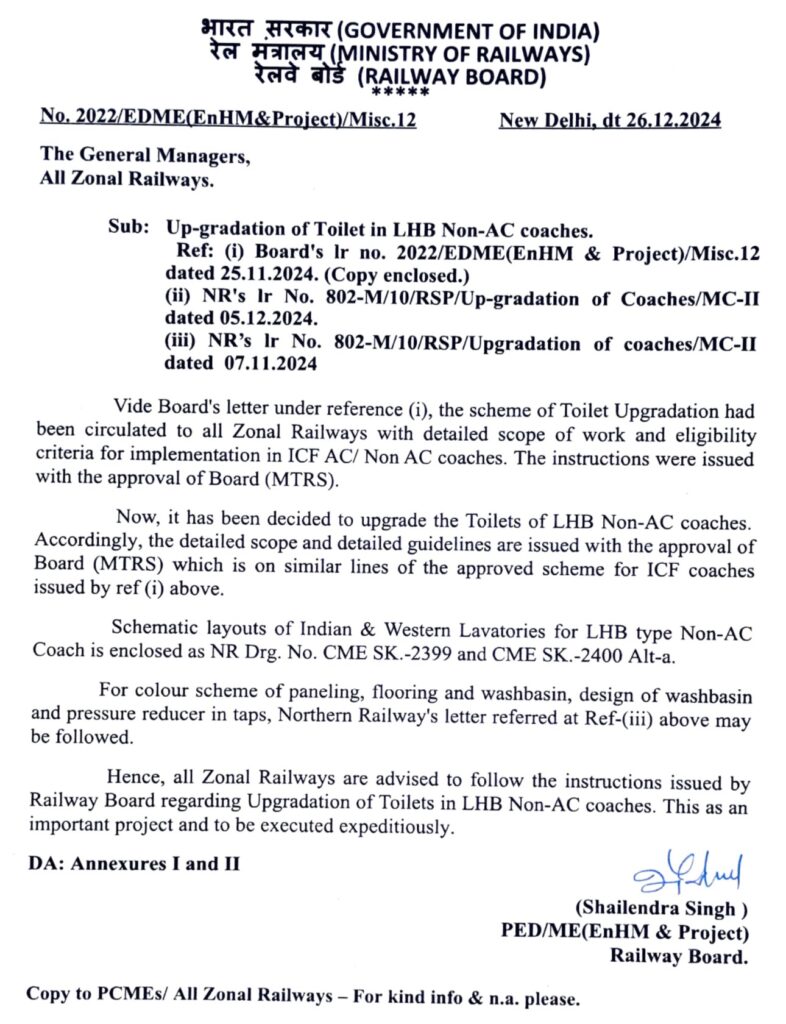
Procedural Lapses in the Material Selection Process
One of the most alarming aspects of the #project is the sequence of events surrounding the introduction of TDPCP. The Railway Board’s #RSP letter dated 25.11.2024 was issued before the finalization of the material specifications. The draft #specification MMDTS 24004, Rev-0, was only prepared by Modern Coach Factory (#MCF), Raibareily in December 2024, with the final draft dated 17.01.2025. This raises serious concerns about the legitimacy of the process and whether it was designed to benefit specific #vendors who may have had prior knowledge of the material requirements.
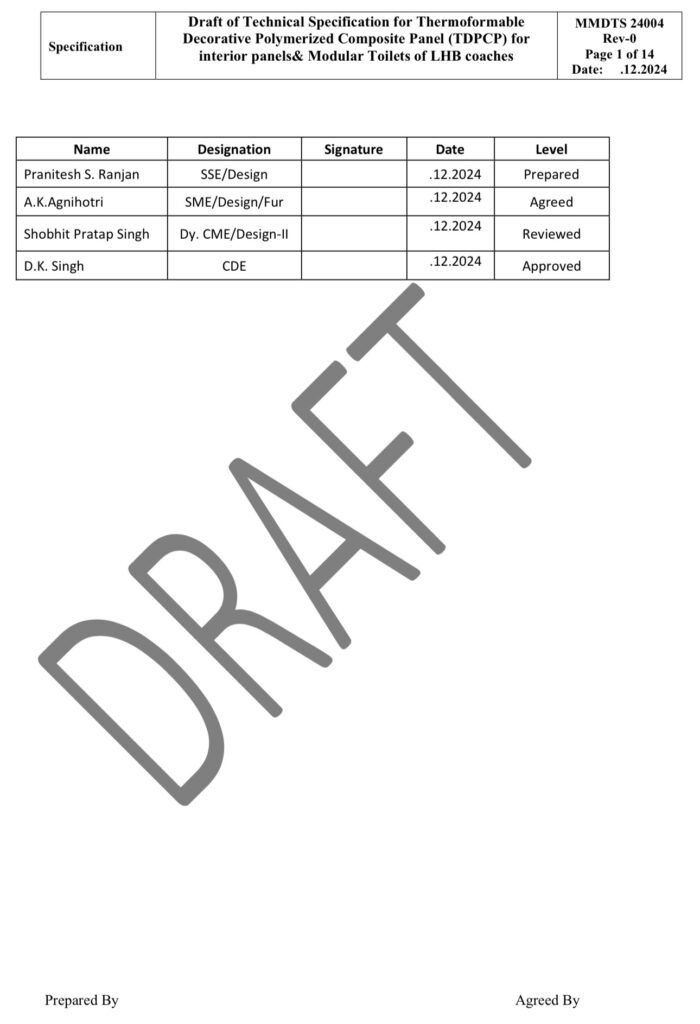
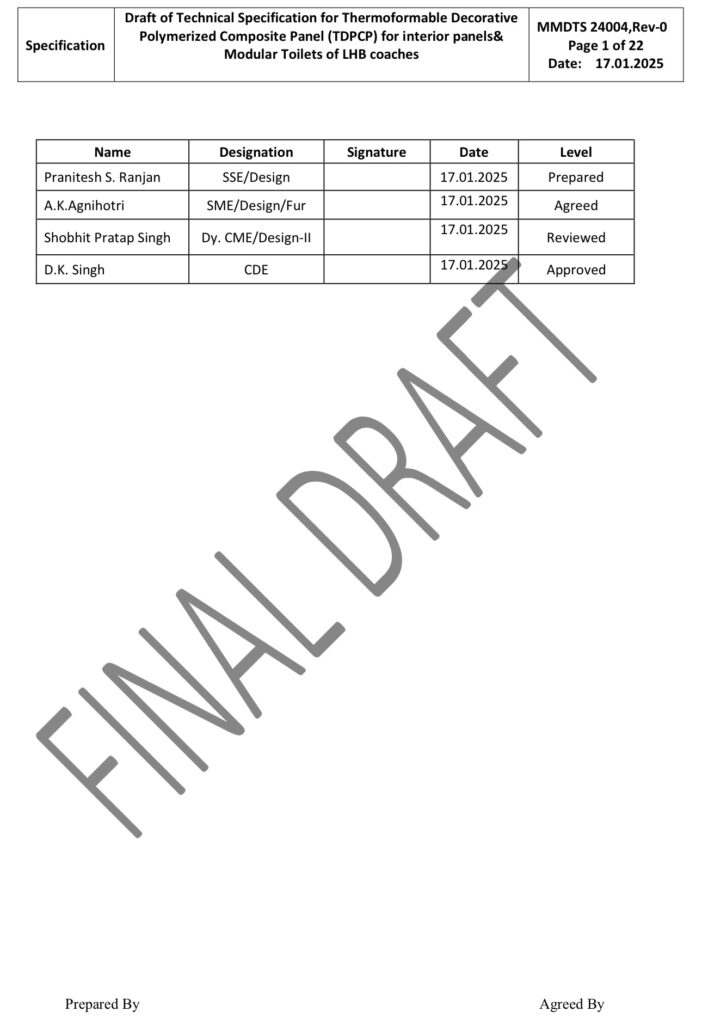
Deviation from Standard Procedures
Issuing an RSP before finalizing material specifications is highly irregular and suggests possible procedural discrepancies. Such an approach undermines the #transparency and #integrity of the #procurement process, raising questions about whether all potential suppliers were given an equal opportunity to participate? The lack of pre-defined specifications at the time of the RSP’s issuance creates the risk of inconsistency in #quality and #performance across railway zones.
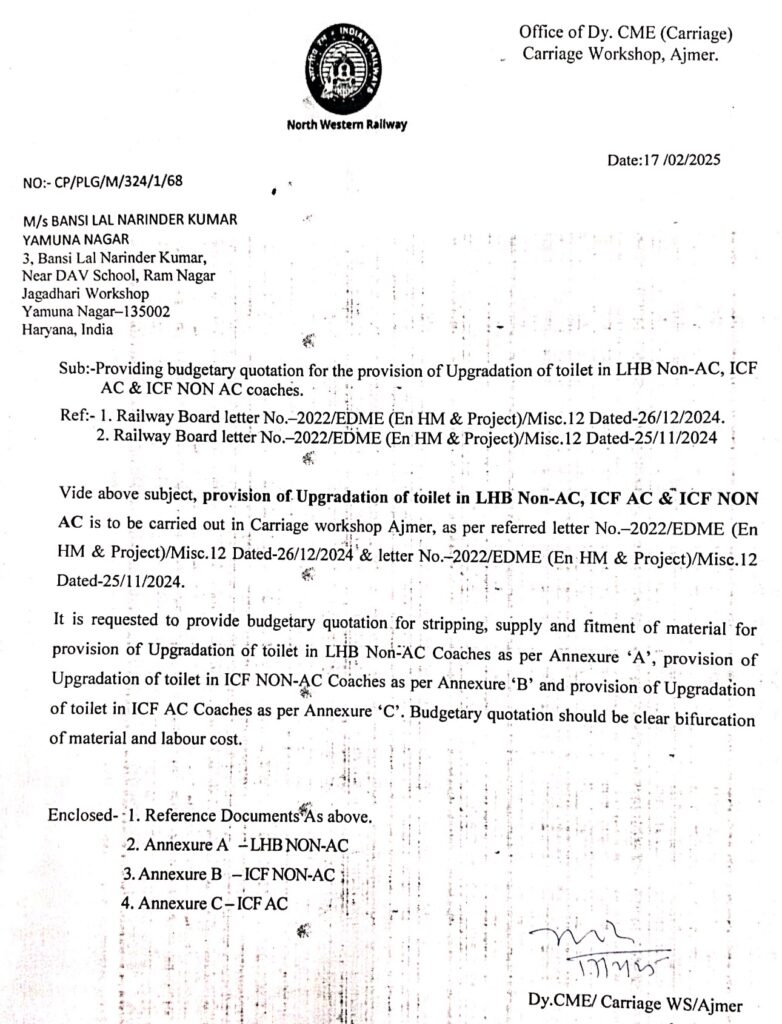
Financial Concerns and Feasibility
Another critical issue is the financial justification for using an expensive and untested material in ICF conventional coaches that are nearing the end of their operational lifespan. Investing large sums of public funds in outdated coaches, which are likely to be phased out soon, appears to be an inefficient allocation of resources. A more practical approach would be to focus on upgrading newer and more widely used #coach designs to ensure long-term benefits and sustainability.
Key Questions That Need to be Answered
To ensure accountability and transparency, the following critical questions must be addressed:
- Why was the RSP issued before the finalization of TDPCP specifications? Was there a reason for this deviation from standard procedures?
- Who was responsible for introducing TDPCP into the project without prior trials or validation for railway applications?
- Were all potential suppliers given an equal opportunity to participate in the procurement process, or did this favor specific vendors?
- Why is an expensive, untested material being used in ICF coaches that are nearing the end of their service life instead of investing in newer coach models?
- What alternative materials were considered before selecting TDPCP, and was a cost-benefit analysis conducted?
- What safeguards are in place to ensure that the material performs well in railway environments and does not lead to safety or durability issues?
Suggestions for Corrective Action
Given the serious concerns surrounding this project, it is imperative that the Railway Board takes immediate corrective measures, including:
- Investigating the issuance of the RSP before the finalization of TDPCP specifications – This should include a review of whether any undue advantage was provided to specific firms.
- Reassessing the toilet upgradation project’s timeline and process – Ensuring that material specifications are finalized before announcing procurement plans.
- Providing full clarification on TDPCP specifications and performance validation – To maintain uniformity, accountability, and public trust in the project.
- Exploring cost-effective alternatives – Prioritizing upgrades in newer coach models instead of spending excessive funds on aging rolling stock.
Conclusion
The upgradation of railway coach toilets is a welcome initiative, but it must be undertaken with transparency, accountability, and financial prudence. The introduction of an expensive and untested material without a well-defined selection process raises serious concerns. The #RailwayBoard must address these issues urgently to ensure that public funds are utilized wisely and that #IndianRailways maintains the highest standards of quality and fairness in its operations.


